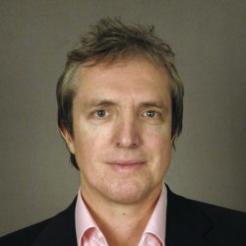Infrastructure bodies will increasingly struggle to generate funding from private and public sectors if they do not improve their ability to sell themselves, NCVO’s volunteering executive director Justin Davis Smith told Big Assist conference attendees yesterday.
Addressing an audience invited to provide feedback on the National Council of Volunteering Organisation’s new online ‘marketplace’ for civil society providers, Big Assist, Davis Smith said that “Infrastructure has become a much maligned concept in recent times and is fighting for recognition and acceptance.”
Having passed through what he called a “golden age for voluntary sector funding” into a time where strategic funding is being obliterated, Davis Smith said that infrastructure organisations, whose roles involve representation and advocacy as well as advice and services, have failed to demonstrate their value.
Placing the blame firmly at the feet of the organisations themselves, Davis Smith noted the “tyranny of language” as one of the main contributors to the bodies’ failures. “If we are brutally honest the language we have used in the past to describe the work we do hasn’t always helped,” he said.
“‘Infrastructure’ is not the most compelling of terms, summoning up, as Kevin Curley once memorably said, people digging up roads or laying railway tracks rather than providing essential advice and support to the sector. Second or third tier organisations is little better. And advice and support only goes so far in that it describes only half of the function of infrastructure,” he said.
“Challenge number one is to come up with some more compelling language which emphasises the symbiotic relationship between front-line activity and the sorts of activities provided by what we currently refer to as infrastructure groups,” he added.
Research needed to prove our worth
Additionally, infrastructure bodies need to build upon research providing evidence of their worth, said Davis-Smith, if they are to persuade policy makers that they “are not simply an unnecessary layer of fat which needs to be trimmed in austere times”. He acknowledged that tightened budgets might make this research difficult but advised that organisations need to be innovative, pointing to NCVO’s use of crowdsourcing to build a data map of infrastructure organisations as an example.
The former chief executive of Volunteering England, which merged with NCVO last year placing him in his new role of executive director of volunteering and development said that the sector needs to embrace change to remain relevant. While Davis Smith warned that collaboration should not be confused with merger, and organisations should be willing to work with one another without the implication that it will lead to merger, he added that merger should not be feared either: “If and where it makes sense locally then organisations should be brave enough to take the plunge,” he said.
Sustainability will also rely on securing new sources of funding, he said, and in order to do so, infrastructure bodies must be “bolder about putting a market value on the expertise and intellectual capital that we hold, particularly when tendering with government or private agencies”.
“Some of this is about the quality of the offer, some of it is about our ability to market our services better, but some of it is about self-confidence and a changed mindset and a willingness for us to value more the expertise and experience that we hold,” Davis Smith asserted.










